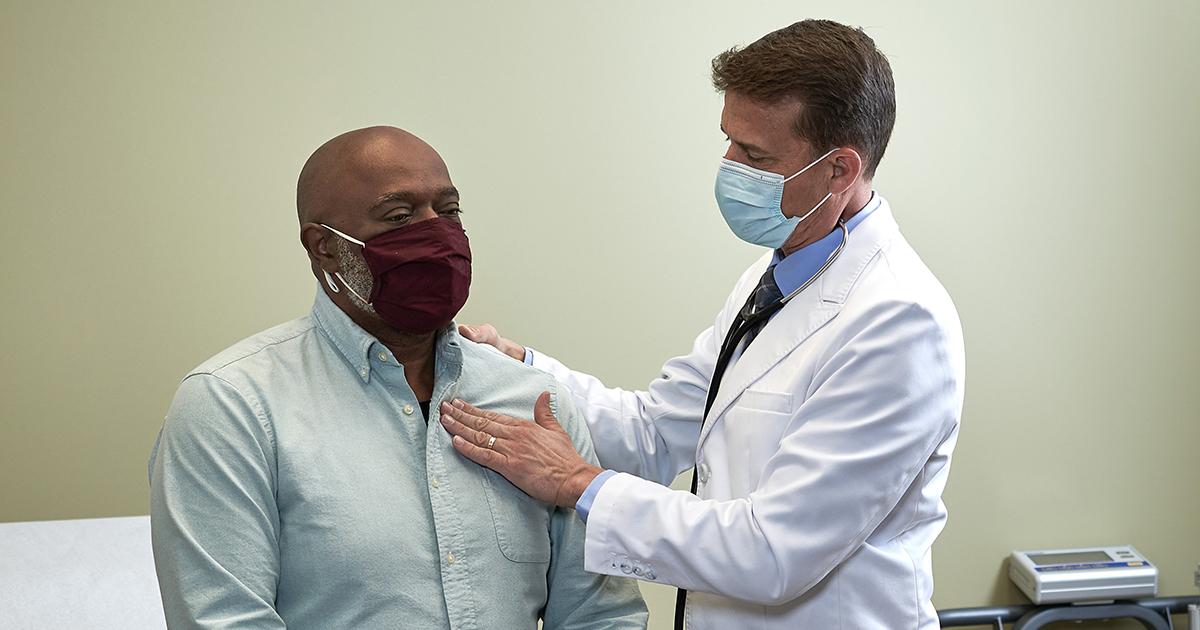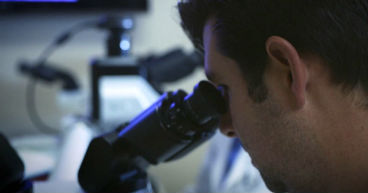
About 40 percent of men and women in the United States today will be diagnosed with cancer at some point in their lifetime, according to the National Cancer Institute. If you are one of them, it’s important to know that getting a cancer diagnosis is just the beginning of a search for a more accurate determination of the type, stage and extent of your disease.
You may have plenty of questions, including:
- What kind of cancer do I have?
- What stage is my cancer?
- Has the cancer spread? To where?
- What’s my prognosis?
Your doctor also will have many questions about your cancer, such as:
- Is the cancer indolent or aggressive?
- Do you have a family history of cancer?
- Does the cancer have specific genetic features?
- Are there targeted therapy or immunotherapy drugs that match these genetic features?
Since every cancer and every patient is different, the answers to these questions, and many more, may help you and your care team develop a more accurate diagnosis about your specific cancer. These are important steps to getting the treatments you need to fight your disease.
Diagnostic tools and tests
An accurate diagnosis serves an important role throughout your cancer journey. Doctors use diagnostic tools to identify and locate tumors, stage the disease and determine an appropriate treatment approach. These tools also help doctors monitor the progress of treatment and modify therapies when needed. After treatment is complete, diagnostic tools may be used to determine whether you’ve developed a cancer recurrence.
Your care team will base your cancer diagnosis on the results of a combination of tests, which may include:
- A medical history
- Physical examination
- Laboratory tests (blood, urine, etc.)
- Imaging tests (X-ray, PET/CT, MRI, etc.)
- Nuclear medicine tests (bone scans, etc.)
- Ultrasound
- Biopsy
- Genetic tests
To arrive at an accurate diagnosis, your doctor will need to first confirm the presence of disease, then identify its type, location, extent and stage. This may be challenging. For some cancers, such as metastatic tumors, it may be difficult to determine where the cancer originated. In rare cases, metastatic tumors may be found but the oncologist cannot determine where they originated. This is called cancer of unknow primary.
An accurate diagnosis relies heavily on proper staging to guide decisions about treatment. For example, say a patient is initially diagnosed with a stage 3 tumor that is determined to be inoperable. After more advanced diagnostic testing, the tumor may then be diagnosed as a stage 1 cancer that the care team determines may be removed with surgery.
Learn more about your diagnosis
Having direct access to advanced diagnostic technology and clinical expertise improves the accuracy of a diagnosis. Advanced technology may help pinpoint tumors and allow doctors to determine an appropriate combination of treatments. Some diagnostic tests may identify an appropriate treatment approach from the start, before treatment even begins. Experienced physicians with expertise in diagnosing diseases, such as pathologists, may more precisely determine the exact cell type and grade of a tumor.
Below are some tips that may help you learn more about your cancer diagnosis.
Get the facts about your cancer. The more you understand about your diagnosis, the better equipped you’ll be to make informed decisions about treatment. Learn about your type of cancer, its size and location and whether it has spread. Find out if it’s slow-growing or aggressive. Ask your doctor for patient-education materials and resources.
Choose your cancer team carefully. Find a hospital/facility that has experts in your form of cancer and advanced technology to diagnose and treat the disease. Also, find a cancer team that includes clinicians from many different disciplines who collaborate on a regular basis to evaluate your status using advanced diagnostic tools, when appropriate.
Seek individualized care. Every cancer diagnosis is unique. Two patients with the same type of cancer may find that their disease grows at different rates and responds differently to the same treatments. What works for one may not work for another. Make sure your team has access to diagnostic tools that precisely identify and pinpoint the disease so your doctor is better able to plan an appropriate treatment regimen.
Take an active role in the process. You may take charge of your health by working cooperatively with your cancer team and speaking up for your needs. Ask ahead of time about the diagnostic testing you’ll need and how you may prepare for it. Ask for test results in a timely manner. Make sure you understand next steps before leaving your doctor's office.
Consider a second opinion. You may want to get a second or third opinion before beginning treatment. Most doctors understand the value of a second opinion when patients are facing major health care decisions. A second opinion may help you feel more confident in the accuracy of your diagnosis, or, in some cases, it may reveal inaccuracies and help you find treatments that are better suited to your needs.
Get the most out of your appointments. Naturally, you may find it difficult to retain all the information you receive after a cancer diagnosis. Write down the questions you want answered ahead of time. Whenever possible, bring someone with you to appointments. He or she may think of questions you may not have thought to ask and take notes for you.
Ask questions about your diagnosis. An important part of dealing with your cancer diagnosis is asking questions and clarifying what you don’t understand. If your doctor uses medical terms you’re not familiar with, ask him or her to explain it another way. Try repeating back to your doctor what you think was said, for confirmation. Here are some questions you may decide to ask:
- What kind of diagnostic tests do I need?
- What can I expect from diagnostic testing?
- How long will it take to get the results?
- How soon can I start treatment after diagnostic testing?
- How will I know if treatment is working?
- How can I stay on top of a recurrence?
Communicate with your doctors. Communication with your cancer team is essential to understanding your diagnosis and making informed treatment decisions. Ask about what was uncovered during the diagnostic process and the treatment options that are available to you. Find out how to reach your care team if you have questions once you get back home.
Schedule follow-up visits. If you have completed treatment, make sure to schedule the necessary follow-up visits with your cancer team. During these visits, your doctor will use diagnostic tests to identify changes in your condition and detect metastasis or recurrence. These appointments may occur more often at first, then be scheduled less frequently.
Don't give up. If you have been given no further options after a cancer diagnosis, it does not necessarily mean that other options don't exist. Remember, other doctors may offer a different picture. Some hospitals may be able to provide more advanced technology and resources to help you. Do your research and ask around for other options when necessary.
What’s the difference between cancer diagnostics and screenings?



